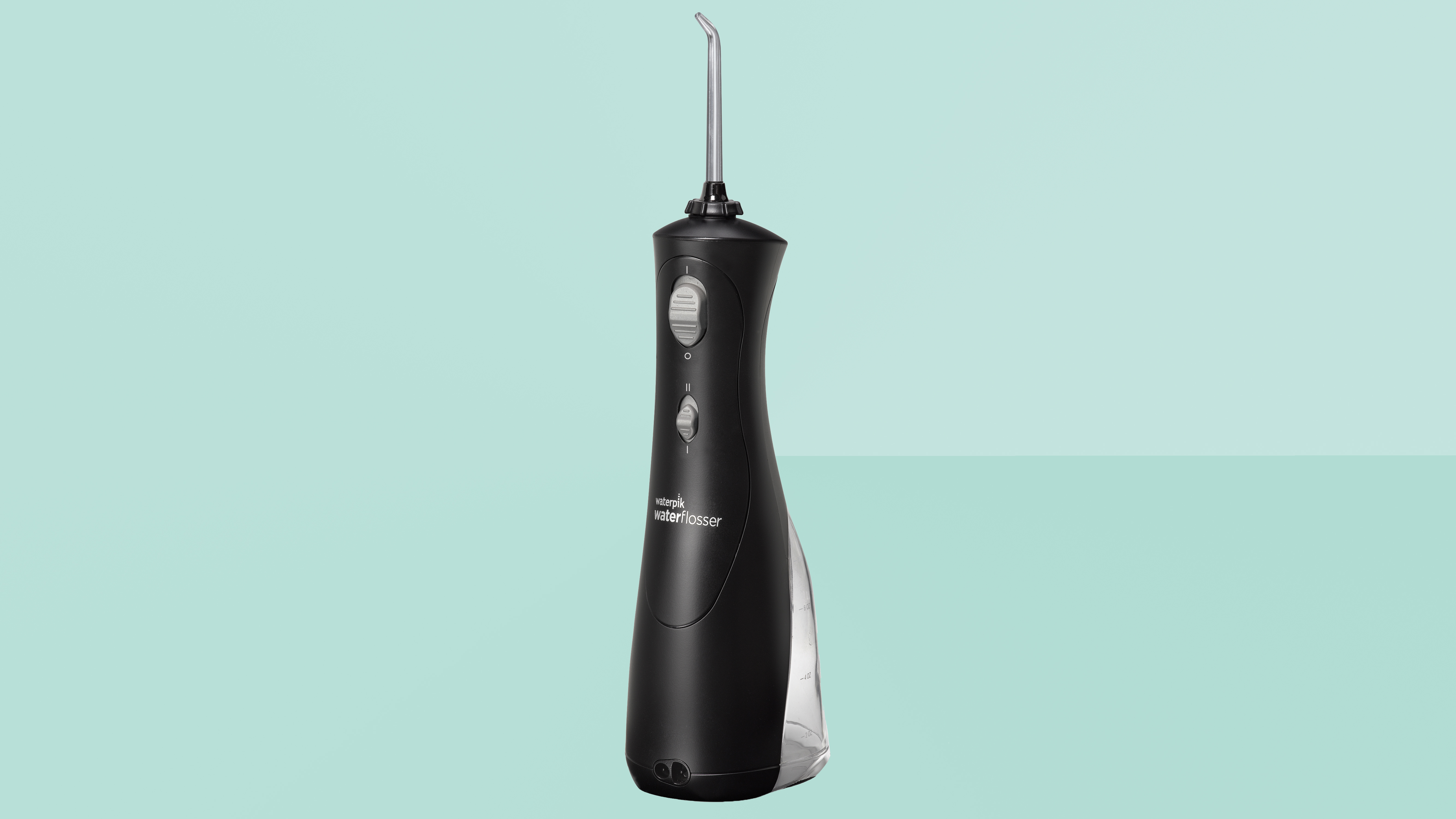Do dentists recommend water flossers?
We talk to dental experts to get the low down on the home oral hygiene gadget

Get all the latest news, reviews, deals and buying guides on gorgeous tech, home and active products from the T3 experts
You are now subscribed
Your newsletter sign-up was successful
More than ever, people are going to greater lengths to take care of their teeth. Whether that’s something to do with the eye-blinding smiles of TV stars from shows like TOWIE and Love Island, we can’t be sure. But what we do know is that people are becoming more mindful about their general oral health and, for that reason, we’re seeing a massive uptake in sales for dental hygiene products.
According to Grand View Research, the global oral care market was valued at a whopping $31.7 billion (£23.1bn) in 2020 and is expected to grow even further, expanding at an annual growth rate of 5.9% from 2021 to 2028.
Those wanting a dazzling smile are starting to realise that it isn’t just about using some whitening toothpaste and hoping for the best. You’ve really got to take care of the whole environment of your teeth to keep them in tip-top condition and thus looking their best, for instance, regular flossing and hygiene checkups.
- Best water flosser: oral irrigators to remove plaque
- Best electric toothbrush: for clean teeth and healthy gums
One product that’s seeing some growing popularity in this category is the water flosser. This home oral hygiene gadget is gaining some traction, as it offers that dentist-clean feeling at your convenience. But what exactly is a water flosser and how does it work? And do dentists actually recommend it as a suitable alternative to flossing? Let’s ask the experts….
What exactly is a water flosser?
Also known as an oral irrigator, a water flosser is a nifty dental gadget that shoots a powerful stream of water between your teeth and gums and works to remove any food debris, bacteria and plaque from those areas that are hard to reach with regular floss.
Compared to normal flossing, water flossers are more gentle and require less precision when it comes to technique. For one, you don’t need to put your hands in your mouth or position a piece of string at awkward angles.
What are the benefits of a water flosser?
While water flossers are not the be-all and end-all of oral health, they can really help promote a better environment for your teeth to thrive.
Get all the latest news, reviews, deals and buying guides on gorgeous tech, home and active products from the T3 experts
Renata Lainchbury, Dental Hygienist at Quest Dental, told T3:
“Water flossers are a super gentle yet effective way to clean around the teeth, braces, dental implants and crowns without damaging any of these areas. And as they only use water to remove food, in some instances, they are more effective [than traditional methods] as they are quicker, hassle-free and can be used easily each morning and evening.”
The other good thing about water flossers is that most models feature a number of different settings, so you can adjust the water pressure to suit your mouth and sensitivity.
Are there different types of water flossers?
Water flossers come in different shapes and sizes depending on the brand. However, there are two main different types: countertop, which sits on your counter and plugs into a nearby socket, or battery-operated, which you charge up like an electric toothbrush. The latter is preferred by those who travel frequently or don't have a plug socket in their bathroom and want the flexibility of a cordless option.
There are also shower and tap flossers available, which attach directly to your water pipes although these are less common and not as easy to purchase or install as your general countertop or cordless options that you’d buy off the shelf.
Water flossing or regular flossing?
While water flossers have many benefits, London Hygienist, Anna Middleton, says that the oral hygiene gadget is only a good option for those people who refuse - or keep forgetting - to floss in the conventional way.
“Regular flossing is always a better option,” she says. “Can't floss, won't floss? Then a water flosser is a good alternative.
“They have been proven to reduce inflammation and bleeding gums by cleaning the places that brushing can't reach in just 60 seconds. I would recommend using as much or as little as needed.”
Who can use a water flosser?
The short answer? Anyone! Especially those who don’t like regular flossing.
Those with braces will also benefit from using water flossers since it’s especially difficult to get to the food debris stuck within the braces and underneath the wires when brushing.
People who get dry mouth might see improvements in their oral hygiene by using a water flosser, too.
“Saliva naturally cleans your mouth and prevents plaque build-up,” says Lainchbury, “however, many people do not produce enough saliva naturally which can promote gum issues and cavities, so water flosser might be a good way to add moisture to a dry mouth and remove any stubborn plaque.”
Should I use a water flosser?
While water flossers are great tools to add into your dental routine, the experts are adamant that they should not be used as a substitute for brushing and flossing.
“Water flossers can be quicker and easier than flossing, however, they should not replace flossing or brushing - they should simply be an addition to a routine,” says Lainchbury, .
“If you find you are super busy in the morning, then they may work for you like the stream of water can clean out any debris in a matter of seconds.”
Liked this?
- Best water flosser: oral irrigators to remove plaque
- Best electric toothbrush deals: better cleaning, less spending

Lee Bell is a freelance journalist and copywriter specialising in all things technology, be it smart home innovation, fit-tech and grooming gadgets. From national newspapers to specialist-interest titles, Lee has written for some of the world’s most respected publications during his 15 years as a tech writer. Nowadays, he lives in Manchester, where - if he's not bashing at a keyboard - you'll probably find him doing yoga, building something out of wood or digging in the garden.
